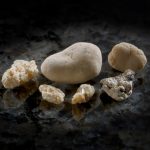This weekly health news roundup has the latest stories regarding psoriasis, irritable bowel syndrome, ulcerative colitis, colon cancer, and kidney stones. We compared psoriasis vs. vitiligo, looked at the associations between overactive bladder and IBS, and the risk of relapse in inflammatory bowel diseases, like ulcerative colitis and Crohn’s disease, in pregnancy.
 Psoriasis vs. vitiligo, differences in symptoms, causes, and treatments
Psoriasis vs. vitiligo, differences in symptoms, causes, and treatments
Psoriasis and vitiligo are two conditions that cause changes to the skin. Vitiligo is not contagious, nor is it life threatening, but it can definitely alter a person’s life. Depending on where the skin is discolored, vitiligo may affect a person’s self-esteem – for example, if it affects their face or other exposed areas. Individuals may not want to go out in public and there is even a risk of developing depression associated with self-image.
Advertisement
Psoriasis is a chronic skin condition caused by quick growth of skin cells and inflammation. Under normal conditions, skin cells grow, live, die, and fall off on a regular basis. When someone has psoriasis, skin cells grow rapidly and don’t fall off. As a result, the cells build up on the surface of the skin, and you end up with thick, scaly patches on your knees, elbows, lower back, or even your scalp.
Here we will outline the differences between psoriasis and vitiligo in terms of causes, symptoms, and treatments. Continue reading…
 Overactive bladder and irritable bowel syndrome influenced by weakened biological clock: Study
Overactive bladder and irritable bowel syndrome influenced by weakened biological clock: Study
Overactive bladder and irritable bowel syndrome are influenced by the weakened biological clock. Lead author Dr. Changhao Wu said, “Previously, people have believed that the brain ‘master’ clock controls the ‘slave’ peripheral clocks, but our study is the first to show that in a contractile organ, such as the bladder, its receptors also control these clocks… By influencing the receptors in the bladder, we can also change our clock genes. These clocks are crucial in maintaining our physiological rhythm and preventing unwanted activities associated with an overactive bladder.”
The recent study challenges the previous belief that the central clock controls the peripheral clocks in other body parts. In fact, it was found that receptors in the bladder in particular regulate the local clock. This finding implied a possible connection between irritable bowel syndrome and overactive bladder. Continue reading…
 Ulcerative colitis and Crohn’s disease relapse risk varies during pregnancy: Study
Ulcerative colitis and Crohn’s disease relapse risk varies during pregnancy: Study
Ulcerative colitis and Crohn’s disease – both inflammatory bowel diseases (IBDs) – relapse risk varies during pregnancy, according to research. The study revealed that women with active IBD near the time of conception have a higher risk of a relapse during pregnancy. Furthermore, women with ulcerative colitis have a higher risk of IBD relapse, compared to women with Crohn’s disease.
Researchers from Erasmus MC-University Medical Center in Rotterdam wrote, “The effects of active disease on birth outcomes have been reported earlier, although these outcomes do not seem representative in the era of biologicals. Also, the retrospective nature of these studies makes it difficult to determine how these pregnant patients were treated for their disease flare.”
The researchers studied the effects of IBD on relapse during pregnancy and birth outcomes.
The researchers followed 298 pregnancies and 226 live births, measuring disease activity and assessing birth outcomes. Majority of women were advised to continue with their IBD treatment during pregnancy and 93 percent adhered to their treatment plan. The researchers wrote, “Periconceptional disease activity was defined as active disease…at any time from eight weeks before conception until the first two weeks of pregnancy.”
Among the participants, 16.4 percent conceived while IBD was active and 29.7 percent had active disease during pregnancy. Within three months of delivery, 12.3 percent experienced a relapse. Continue reading…
 Colon cancer recurrence associated with diabetes, high blood pressure: Study
Colon cancer recurrence associated with diabetes, high blood pressure: Study
Colon cancer recurrence is associated with diabetes and high blood pressure, according to research. In a retrospective study looking at 36,000 colon cancer patients, the researchers found that early diabetes and high blood pressure increased the risk of colon cancer recurrence and mortality, compared to patients without either condition.
Senior study author Nestor Esnaola said, “Although metabolic syndrome has been linked to colon cancer, the third leading cause of cancer death in the U.S., previous work looking at its effect on mortality has not adequately accounted for cancer stage or treatment. Our results suggest that patients with early stage colon cancer who also have diabetes or hypertension may need to be followed more closely for recurrence and could potentially benefit from broader use of adjuvant chemotherapy.”
“Metabolic syndrome as a whole had no apparent effect on colon cancer recurrence or survival. When we teased out and analyzed the effect of each of its components, however, the data told a different story,” Dr. Esnaola continued.
The researchers found that 47.7 percent of the patients who did not have a metabolic syndrome – diabetes or high blood pressure – were still alive five years after colon cancer diagnosis, compared to patients who did have a metabolic syndrome. The rates of recurrent colon cancer were eight percent higher among patients with diabetes or high blood pressure. Continue reading…
 How to get rid of kidney stones at home?
How to get rid of kidney stones at home?
Advertisement
Kidney stones are a painful problem that can last for weeks in some cases, but you should not suffer when there are ways to get rid of the stones – including natural home remedies.
Kidney stones form when high levels of calcium, sodium, uric acid, or other crystal-forming substances start to build up in a person’s urine to levels the body just can’t get rid of. What happens is, these crystals chemically bond and form a stone inside the kidney. While some stones are small and pass through urine on their own with no symptoms, others can grow large and get lodged in the tube that allows urine to pass from the kidney to the bladder. In these situations, kidney stones cause pain.
Kidney stone pain is nothing to scoff at. Some women have described it as “worse than giving birth”. Knowing how to get rid of kidney stones at home fast can be of great relief to many people. Kidney stones can happen to anyone at any time, so knowing how to get rid of the associated pain may come in handy. Continue reading…
